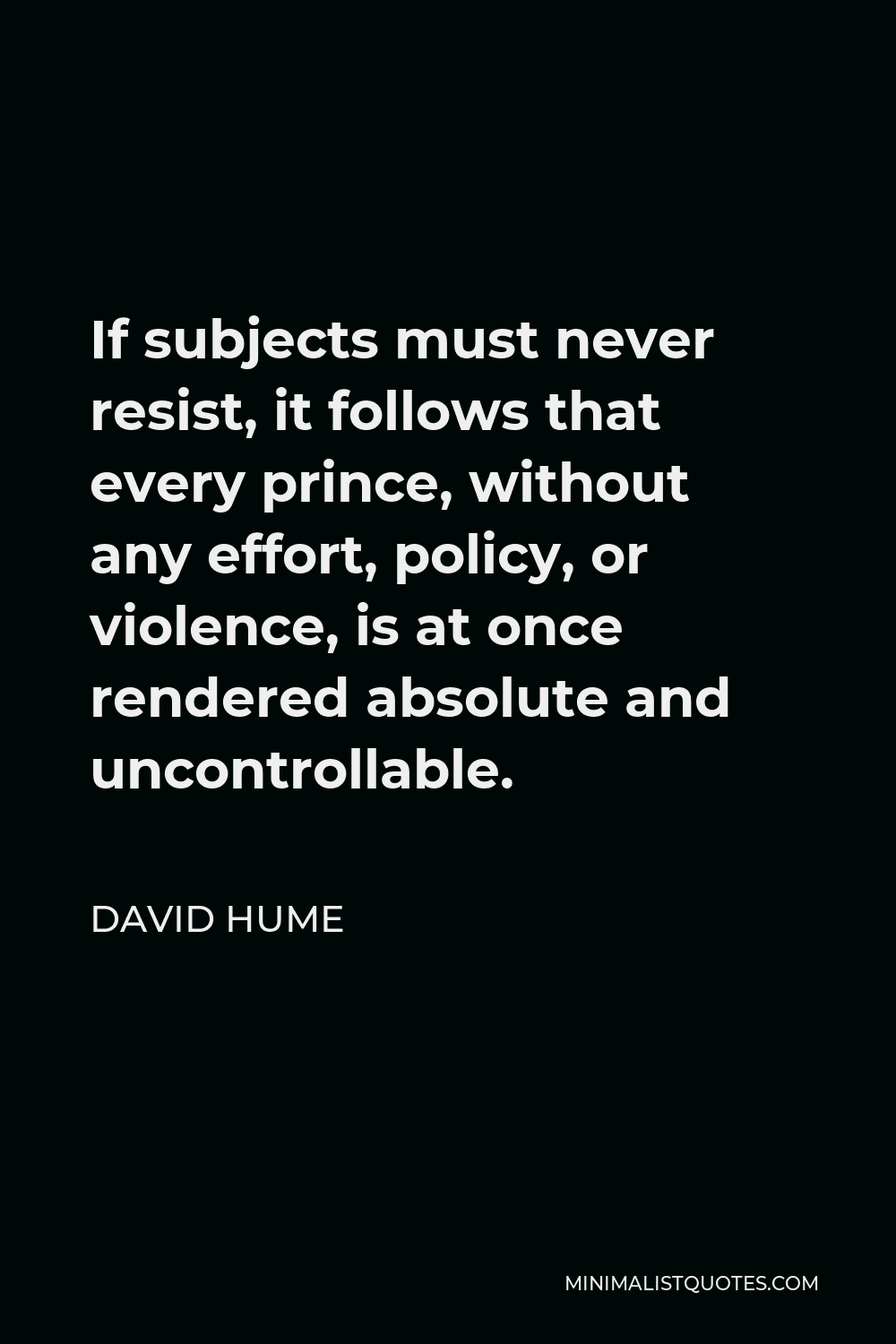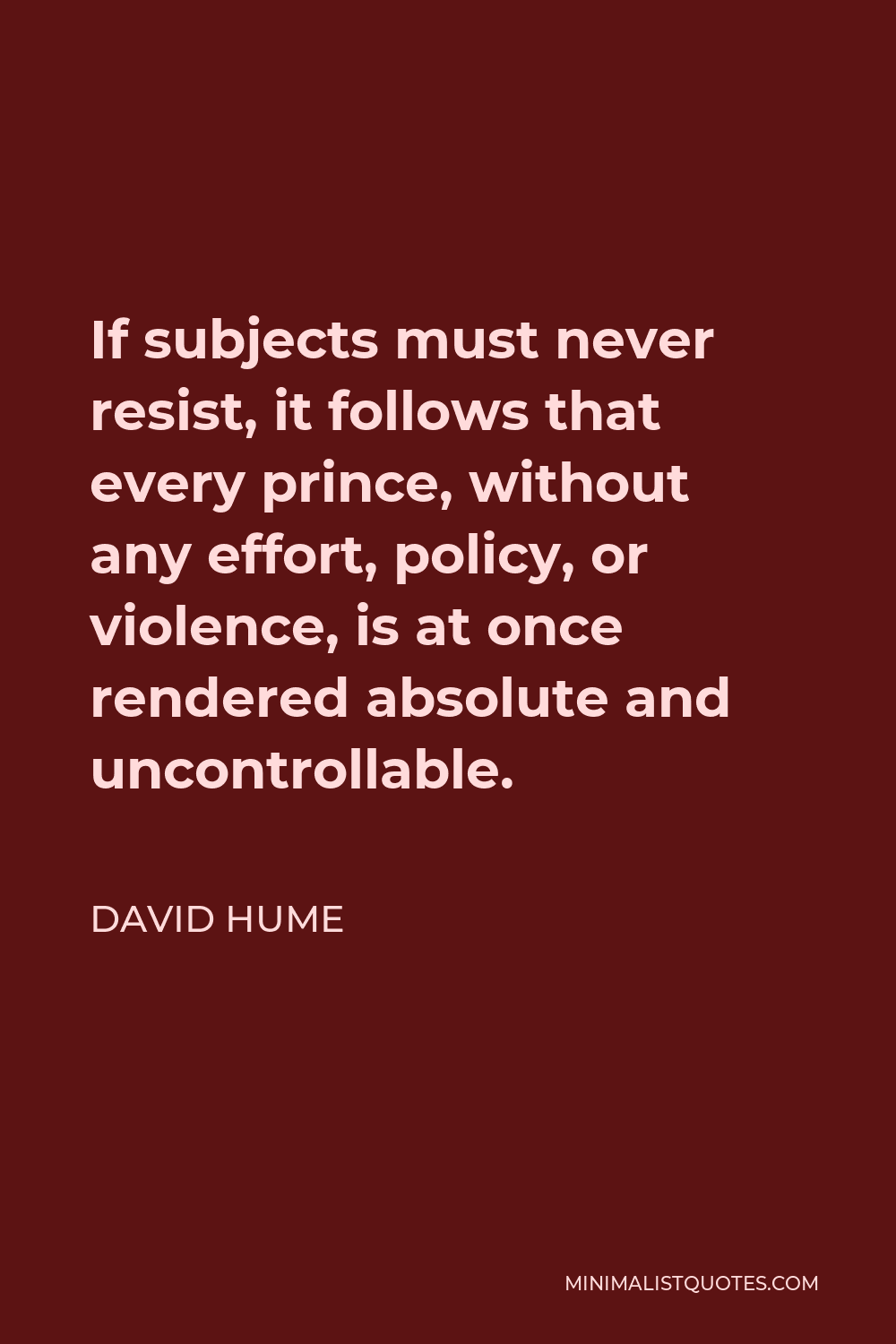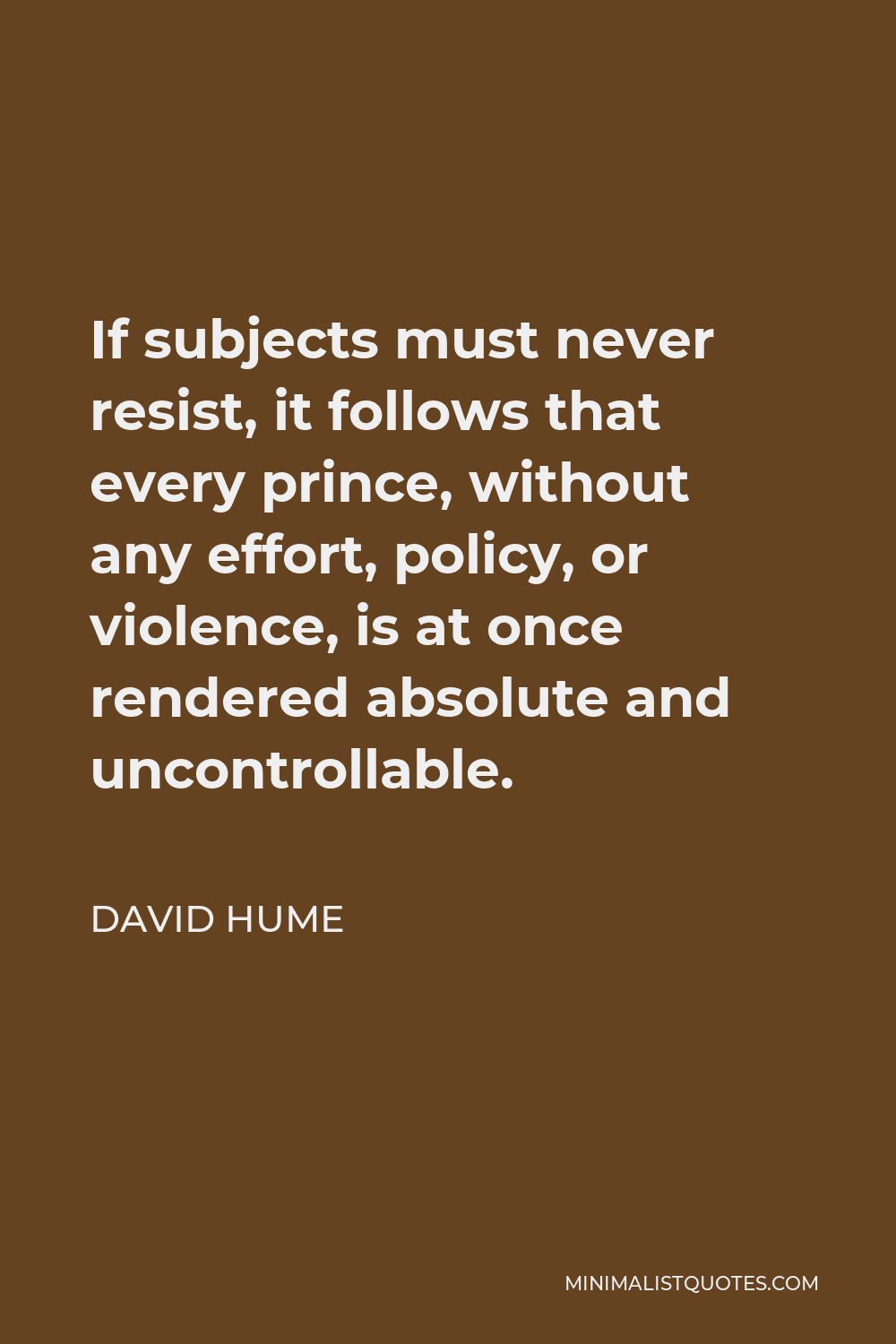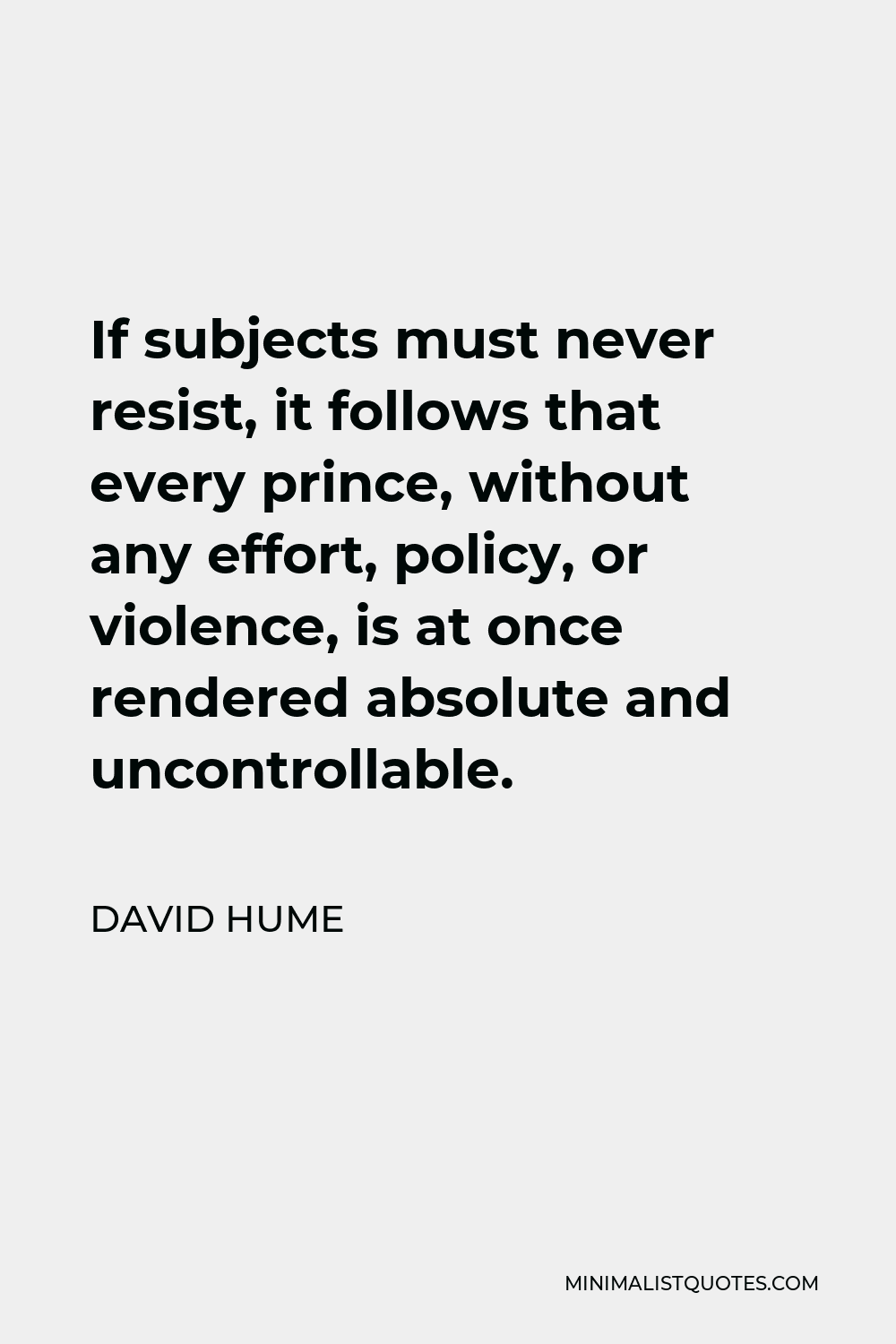If subjects must never resist, it follows that every prince, without any effort, policy, or violence, is at once rendered absolute and uncontrollable.
DAVID HUMEIf subjects must never resist, it follows that every prince, without any effort, policy, or violence, is at once rendered absolute and uncontrollable.
More David Hume Quotes
-





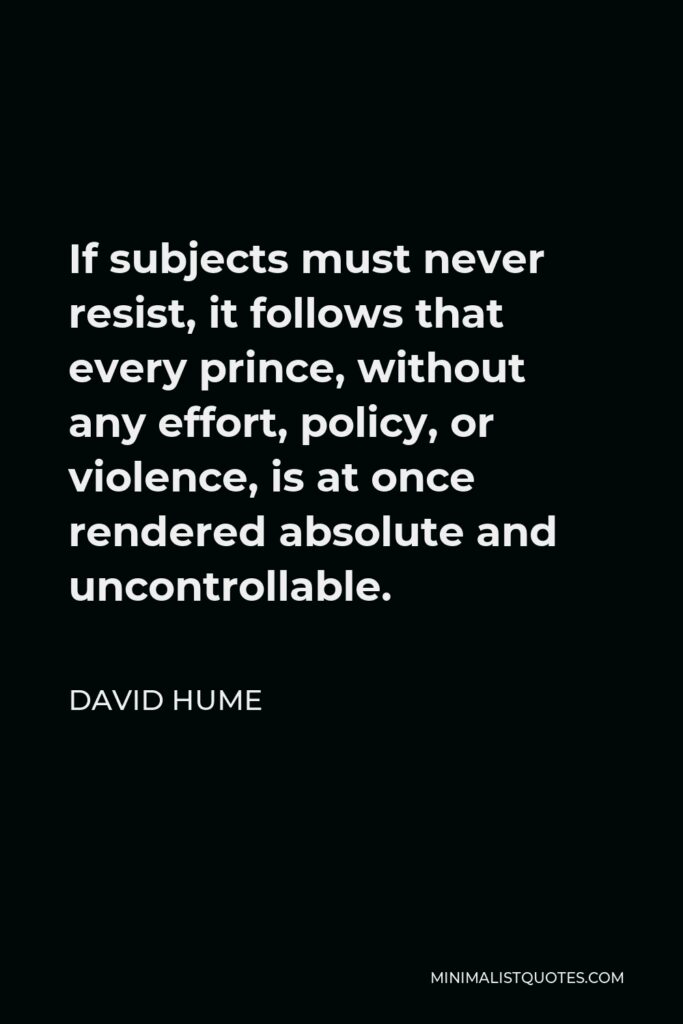

-





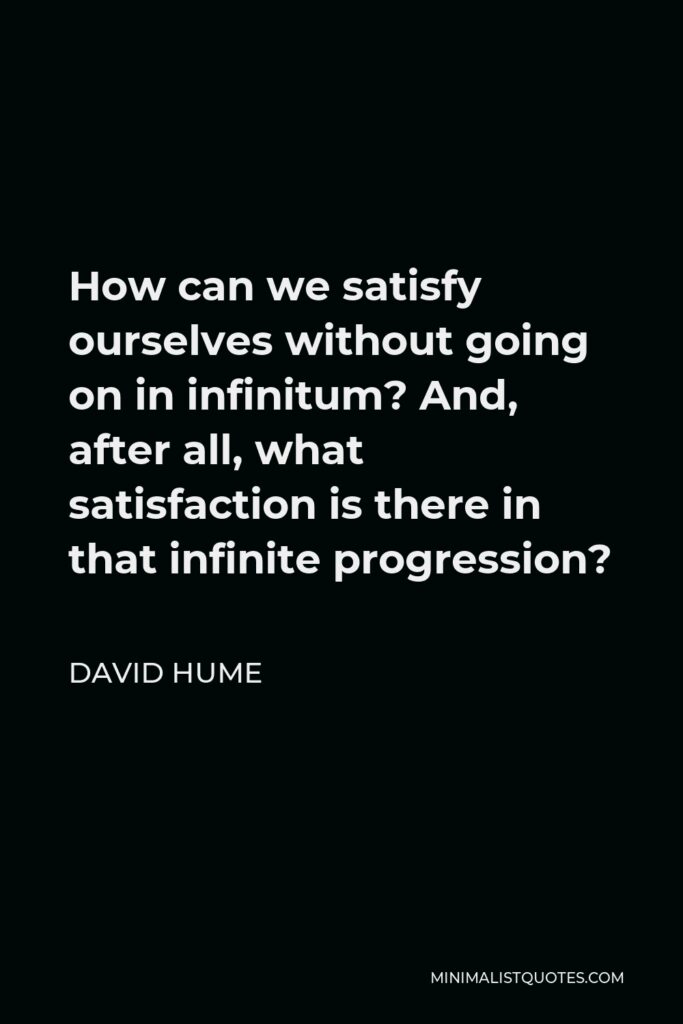

How can we satisfy ourselves without going on in infinitum? And, after all, what satisfaction is there in that infinite progression?
DAVID HUME -





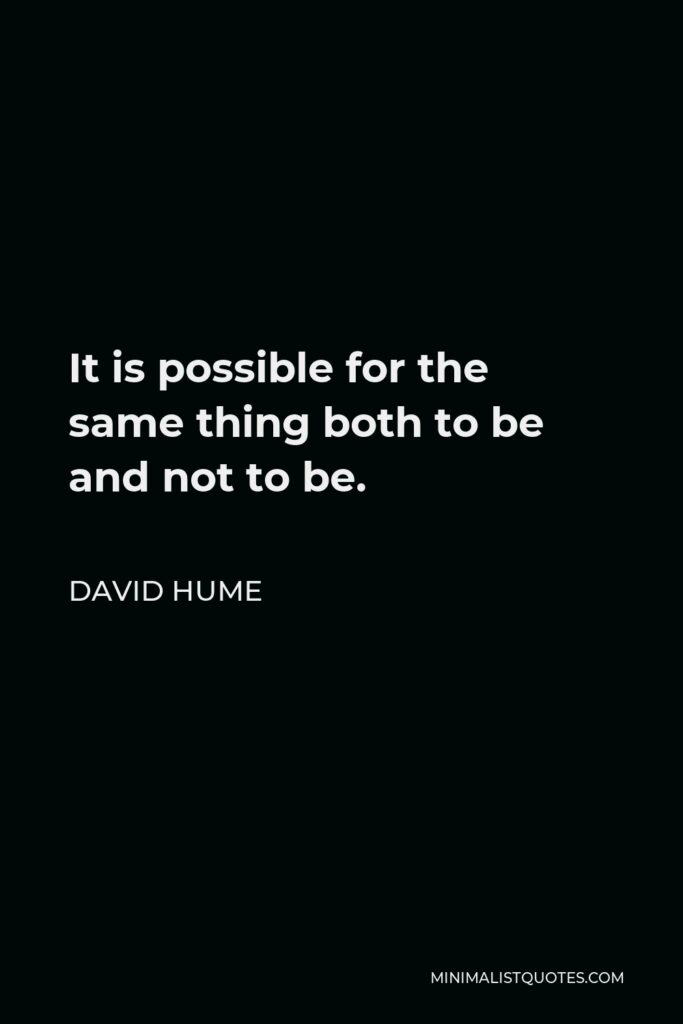

It is possible for the same thing both to be and not to be.
DAVID HUME -





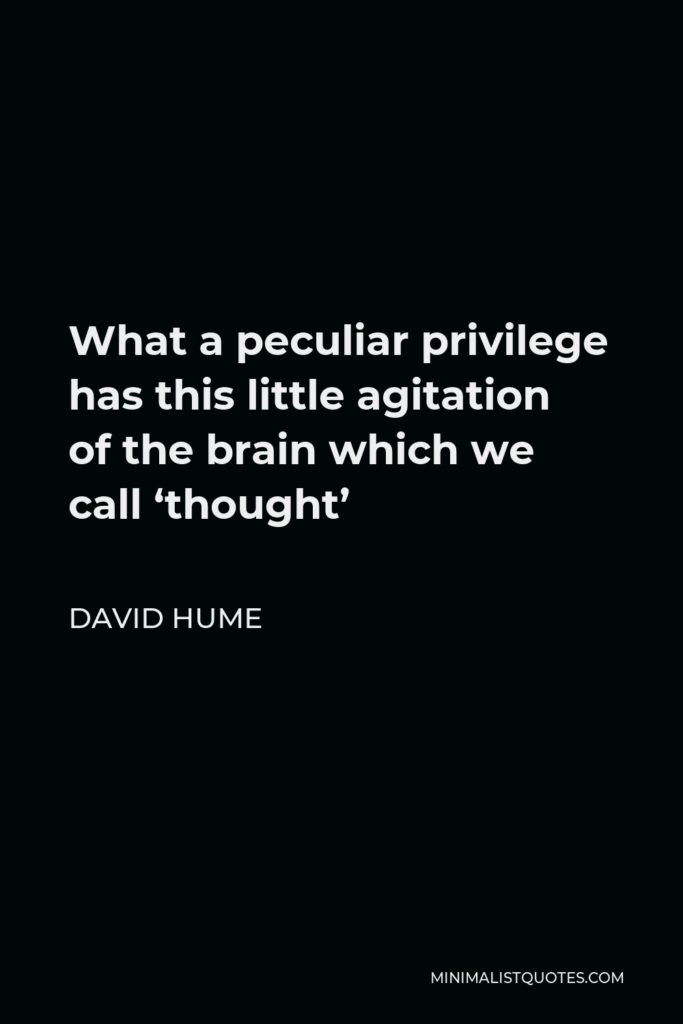

What a peculiar privilege has this little agitation of the brain which we call ‘thought’
DAVID HUME -







He is happy whose circumstances suit his temper, but he is more excellent who can suit his temper to his circumstance.
DAVID HUME -





![David Hume Quote - The fact that different cultures have different practices no more refutes [moral] objectivism than the fact that water flows in different directions in different places refutes the law of gravity.](https://minimalistquotes.com/wp-content/uploads/2021/05/the-fact-that-different-cultures-have-different-pr-683x1024.jpg)

The fact that different cultures have different practices no more refutes [moral] objectivism than the fact that water flows in different directions in different places refutes the law of gravity.
DAVID HUME -





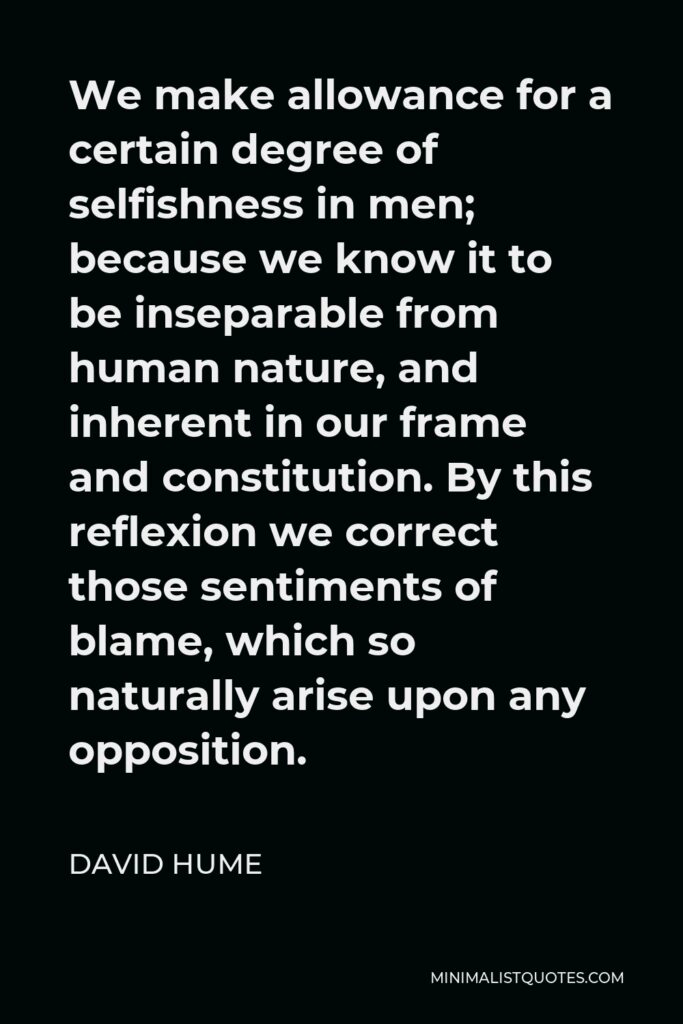

We make allowance for a certain degree of selfishness in men; because we know it to be inseparable from human nature, and inherent in our frame and constitution. By this reflexion we correct those sentiments of blame, which so naturally arise upon any opposition.
DAVID HUME -





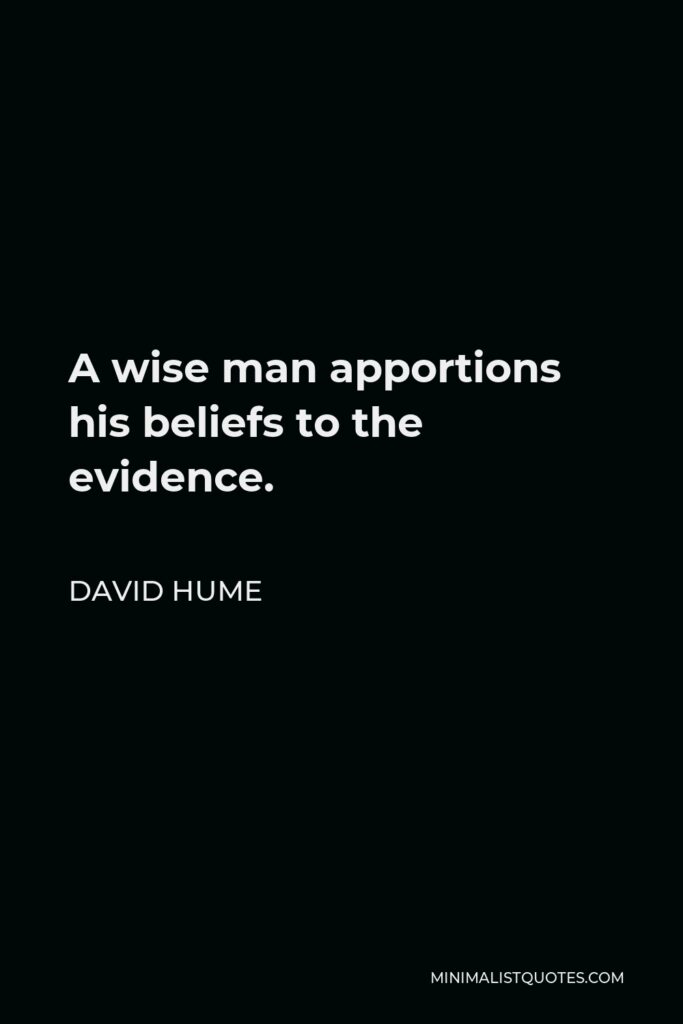

A wise man apportions his beliefs to the evidence.
DAVID HUME -





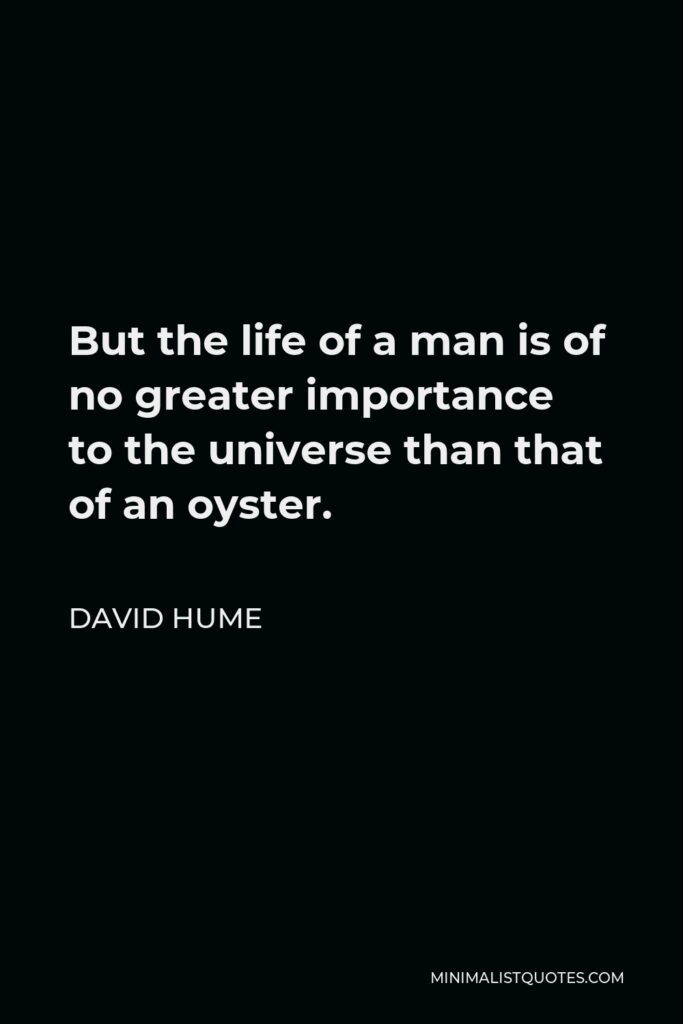

But the life of a man is of no greater importance to the universe than that of an oyster.
DAVID HUME -





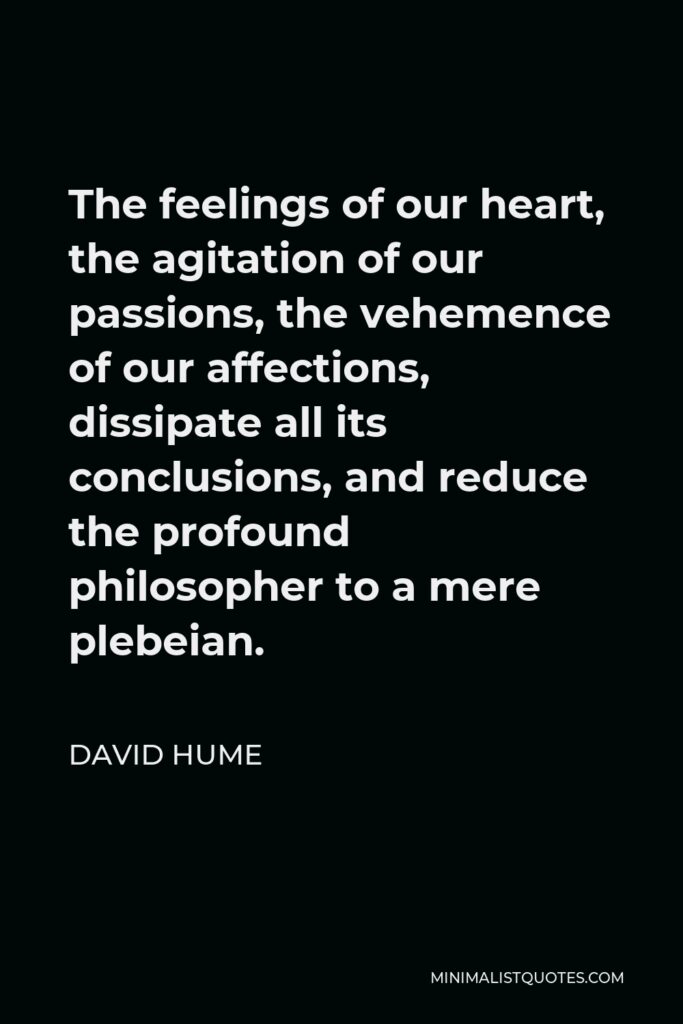

The feelings of our heart, the agitation of our passions, the vehemence of our affections, dissipate all its conclusions, and reduce the profound philosopher to a mere plebeian.
DAVID HUME -





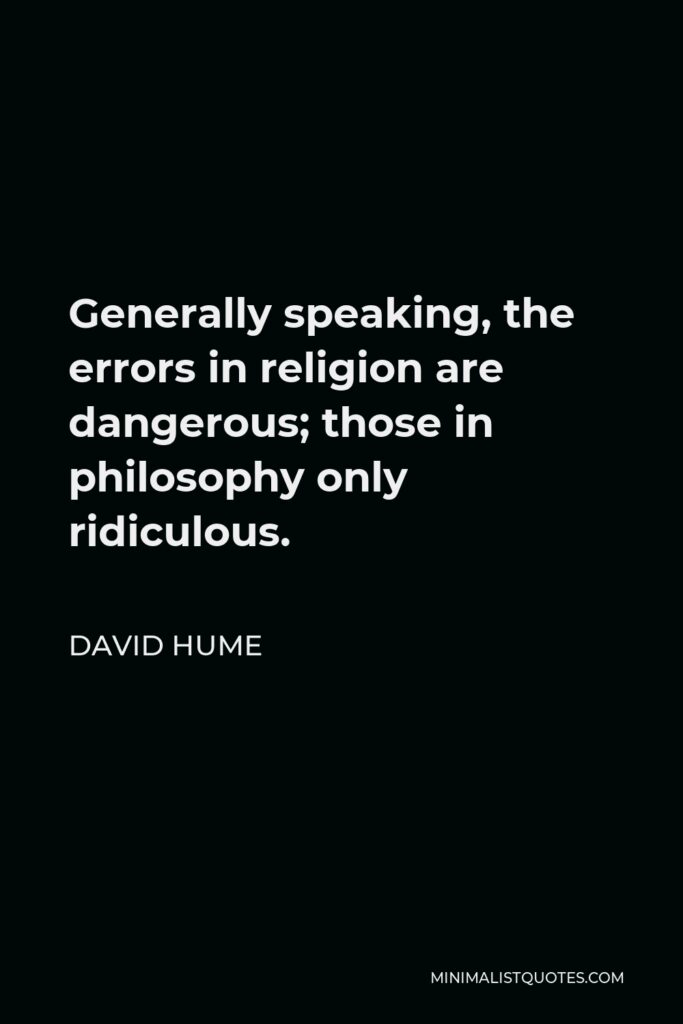

Generally speaking, the errors in religion are dangerous; those in philosophy only ridiculous.
DAVID HUME -





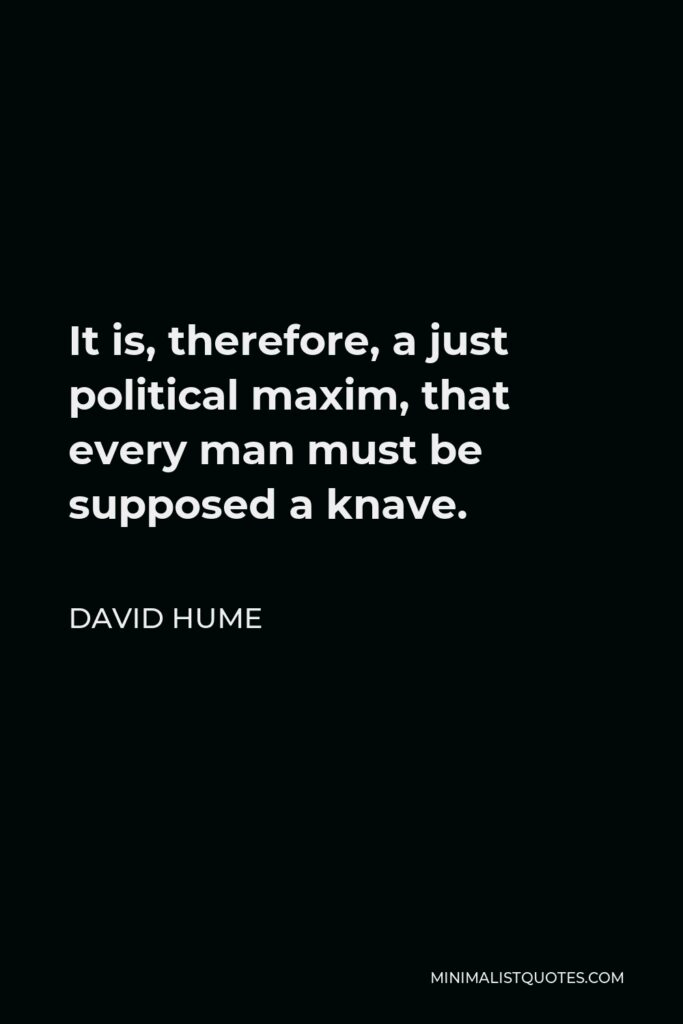

It is, therefore, a just political maxim, that every man must be supposed a knave.
DAVID HUME -







To be a philosophical Sceptic is the first and most essential step towards being a sound, believing Christian.
DAVID HUME -







No man ever threw away life while it was worth keeping.
DAVID HUME -





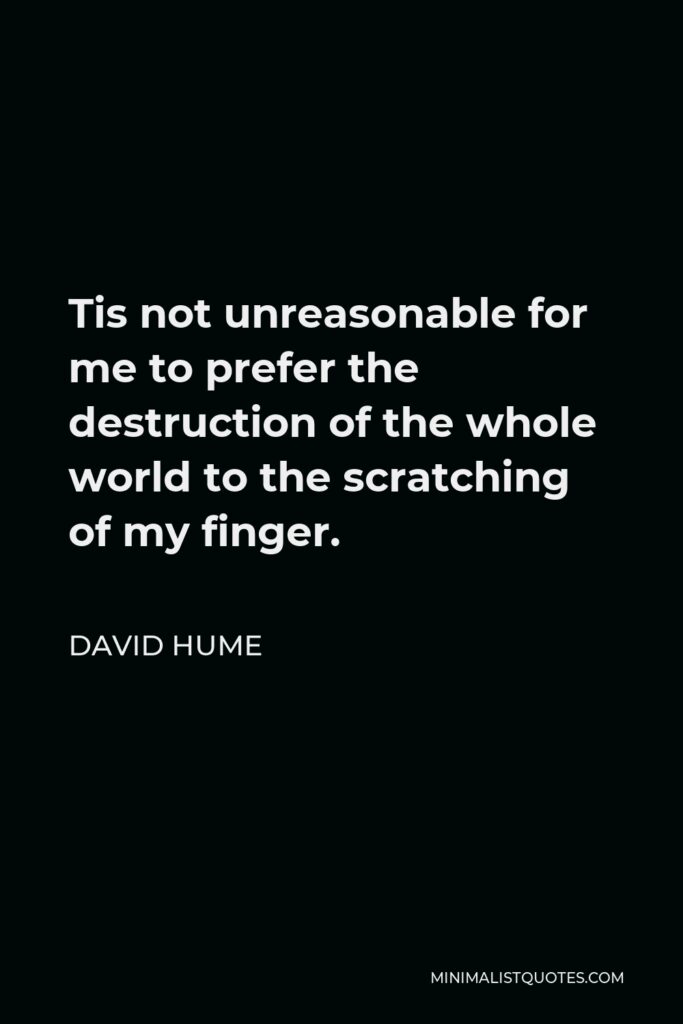

Tis not unreasonable for me to prefer the destruction of the whole world to the scratching of my finger.
DAVID HUME -





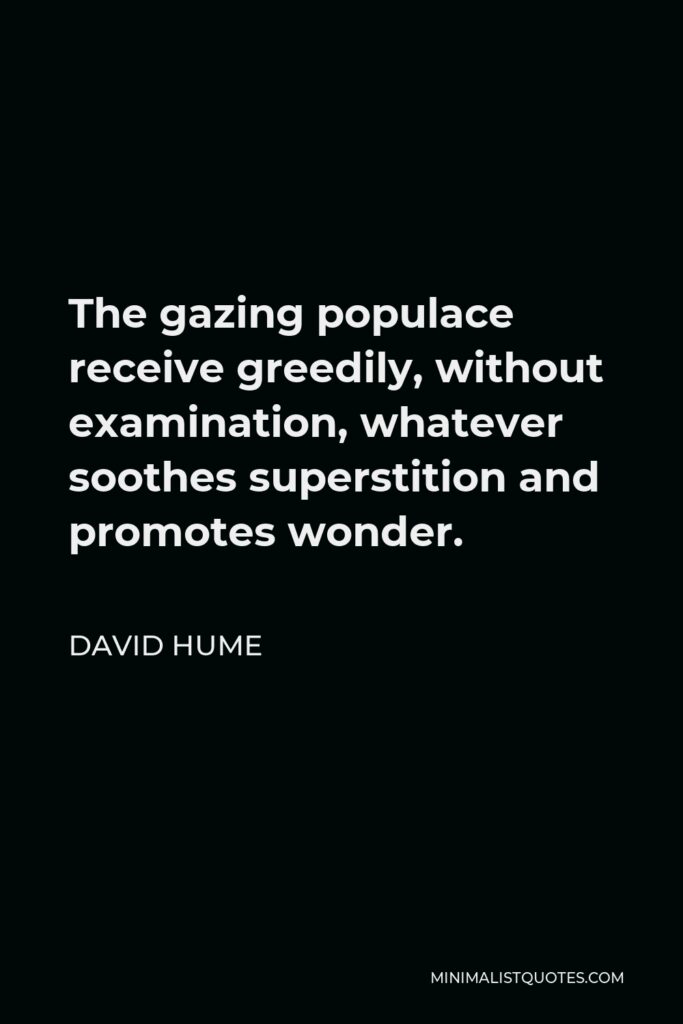

The gazing populace receive greedily, without examination, whatever soothes superstition and promotes wonder.
DAVID HUME
